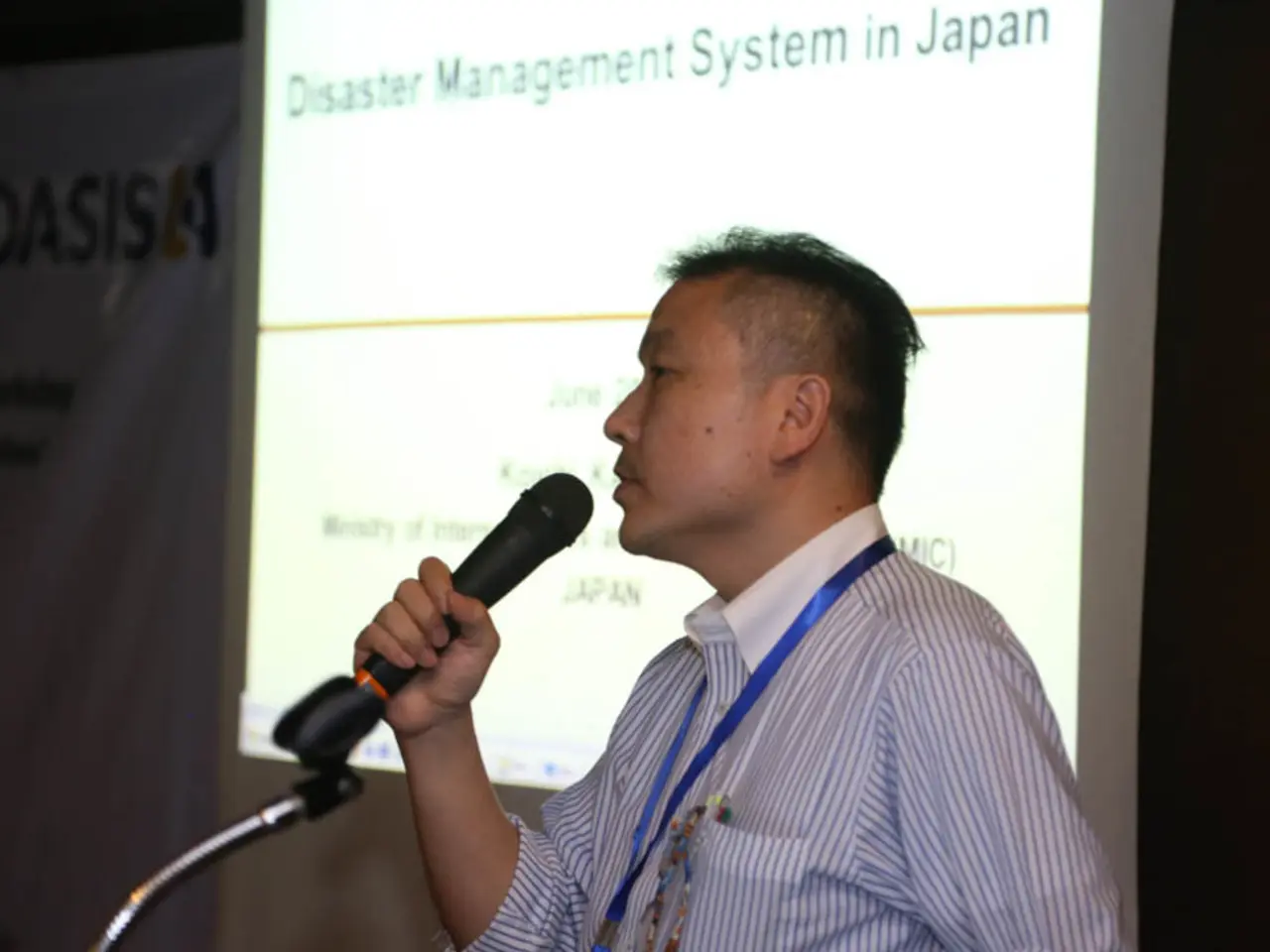Political leader Ishiba steps down as Prime Minister following a string of election defeats.
Japan's Prime Minister Resigns Amid Political Uncertainty
Japanese Prime Minister Shigeru Ishiba resigned on Sunday, amid concerns over political uncertainty and the loss of parliamentary majority. Ishiba oversaw his ruling coalition losing majorities in elections for both houses of parliament, leading to calls for his resignation since the latest election loss in July.
The Liberal Democratic Party (LDP), which has ruled Japan for almost all of the post-war period, has been instructed to hold an emergency leadership race. Sanae Takaichi, an LDP veteran who has criticized the Bank of Japan's interest rate hikes, is a strong candidate to become the next Prime Minister following Ishiba's resignation.
The yield on Japan's 30-year government bond hit a record high due to these concerns over political uncertainty. Michael Brown, senior research strategist at Pepperstone, anticipates further selling pressure on the yen and long-dated bonds due to increased political risk.
Ishiba completed the trade deal with Japan's biggest trading partner before his resignation, pledging $550 billion of investments in return for lower tariffs. However, Trump's tariffs targeted at Japan's critical automotive sector had previously forced Japan to downgrade its growth outlook for the year.
The far-right, anti-immigration Sanseito party made significant gains in July's upper house election, adding to the political instability. Yoshinobu Tsutsui, chairman of Japan's biggest business lobby, Keidanren, urged the new leader to foster unity within the party, establish stable political conditions, and implement necessary policies swiftly.
Some voters are hoping for a leader who can effectively manage tariff issues and diplomacy. Maki Utsuno, a 48-year-old chemistry researcher, expressed a desire for a prime minister who can properly handle tariff issues and diplomacy more effectively. Ishiba expressed concern about the security environment his successor will inherit, citing the recent gathering of Chinese, Russian, and North Korean leaders in Beijing.
Nearly 55% of respondents to a poll by Kyodo news agency published on Sunday said there was no need for an early election. However, the next LDP leader may call for a snap election to seek a mandate, according to analysts. The next LDP president is not guaranteed to become prime minister, but it is likely as the party remains the largest in the lower house.
Shinjiro Koizumi, the telegenic political scion and Ishiba's farm minister, is another possible successor. Takaichi's potential leadership could lead to a shift in fiscal and monetary policy, with investors focusing on the chance of Ishiba being replaced by an advocate of looser fiscal and monetary policy.
In conclusion, Japan is facing political instability following the resignation of Prime Minister Shigeru Ishiba. The next LDP president, who is likely to be Sanae Takaichi, will have a significant impact on Japan's political landscape and economic policies.
Read also:
- Tobacco industry's suggested changes on a legislative modification are disregarded by health journalists
- Trump's Policies: Tariffs, AI, Surveillance, and Possible Martial Law
- Uncovering Political Ad Transparency: A Guide to Investigating opponent's Political Advertisements in the Digital Realm
- Elon Musk praises JD Vance's debate performance against Tim Walz








